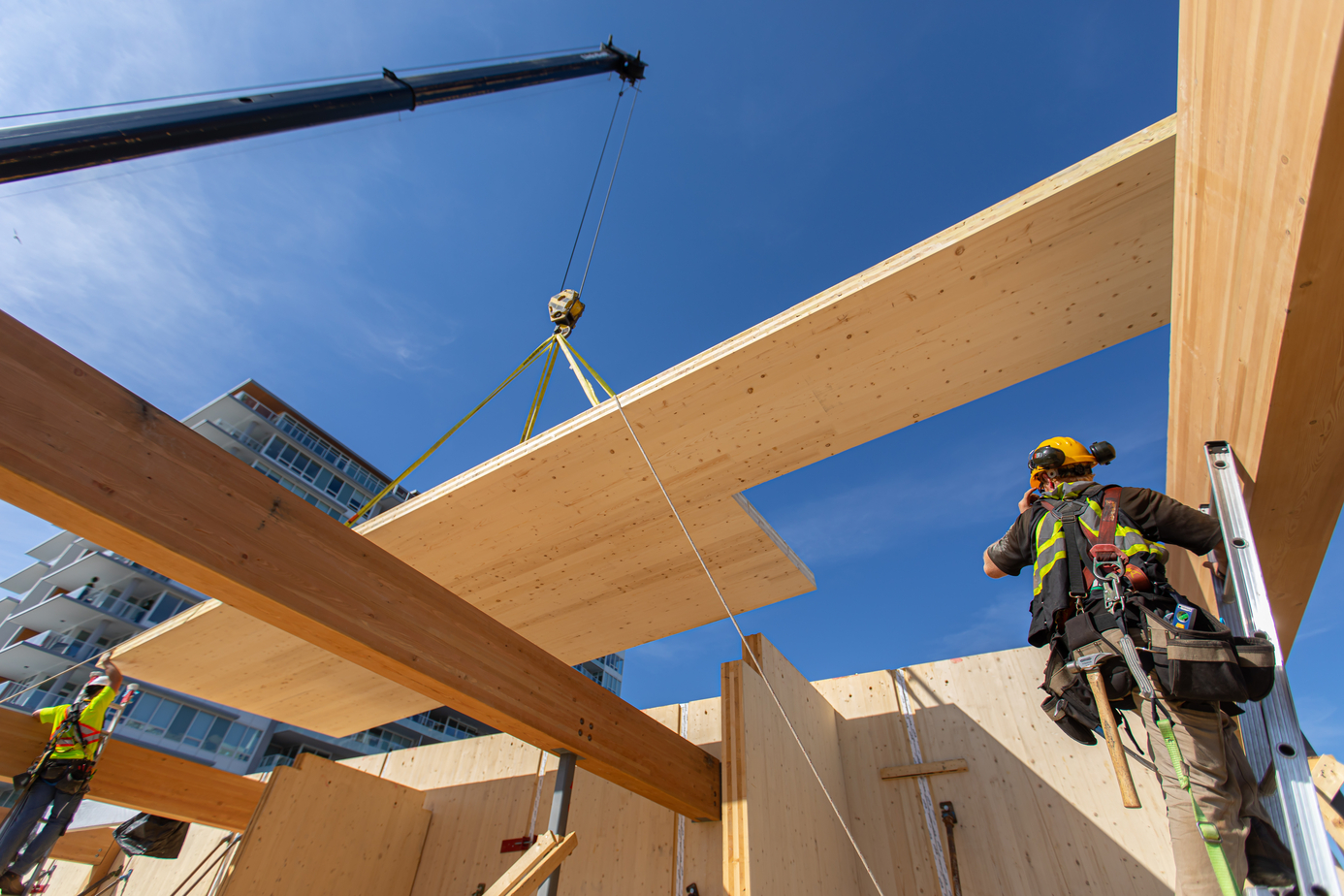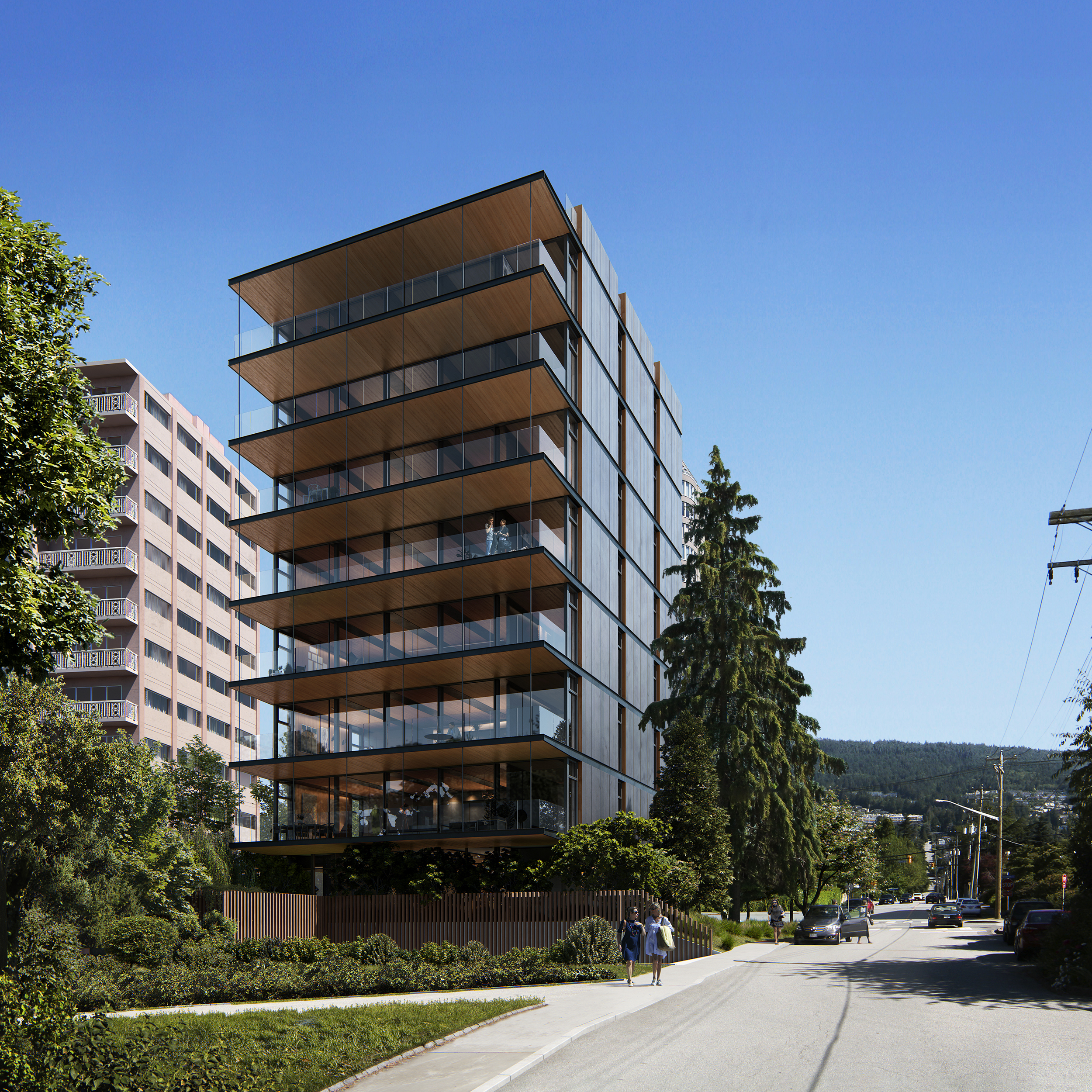Timber
Table of Contents
Light Frame Construction
Light frame construction is usually the go to method for building family homes in North America. Although, nowadays light-frame wood construction is now being used to construct a more diverse range of larger and taller building types from schools and health care facilities to commercial offices and mixed-use retail and residential projects. This type of timber is made up of dimensioned lumber and engineered wood that is regularly spaced and fastened together with nails to create floor, wall, stair and roof assemblies. As they are fastened together the wood components form the structure of a building, much like a skeleton [1].
| Figure 1: Light Frame Construction [1] | Figure 2: Diagram of Light-Frame Timber House [2] |
|---|---|
Advantages
- Great for smaller buildings
- Often takes less time to build many houses
- The spaces created are able to heat up more quickly allowing for suitable living spaces [3]
- Easily cut down to size and attached on site without the need of big machines
- Can be filled with sound absorbing material
- Reduces issues with condensation due to cavities in walls [3]
- Wall cavities allow wires and plumbing to run throughout the building
- If well constructed and maintained the risk of rot and infestation is minimal
- Great for sustainability and cost - less materials are needed and require less energy to produce [3]
| Figure 3: House Built Using Light-Frame Construction [1] |
|---|
Mass Construction
This concept involves attaching pieces of soft wood, conifers like pine, spruce, or fir, as well as some deciduous species such as birch, ash, and beech together to form larger pieces. Mass Timber is a general term that comprises many different types of products of various sizes and functions including glue-laminated (glulam) beams, laminated veneer lumber (LVL), nail-laminated timber (NLT), and dowel-laminated timber (DLT). But the most common and most familiar form of mass timber, the one that has opened up the most new architectural possibilities, is cross-laminated timber (CLT) [4]. This type of construction involves making large, solid wood panels, columns or beams often manufactured off-site to be later used for load-bearing wall, floor, and roof construction. They are thick, compressed layers of wood that create strong, structural load-bearing elements that can be constructed into panelized components [5]. Mass timber is engineered for high strength ratings like concrete and steel but are significantly lighter in weight [5].
| Figure 3: Mass Construction [5] | Figure 4: Cross Laminated Timber [5] |
|---|---|
Advantages
- Great for taller and bigger buildings that need to be really strong structurally
- It performs well in fire; large, solid, compressed masses of wood are actually quite difficult to ignite. Even when ignited it tends to act in a predictable way [4]
- It reduces carbon emissions; In comparison to steel and concrete overall production and usage of CLT decreases greenhouse gases.
- Building can be constructed faster with lower labor costs and less waste; the factory can fabricate, for example, a CLT wall exactly to specifications using a CNC machine, with openings in the right places and space for plumbing and electric [4]
- It is very good against earthquakes
- Can help with forest management by using weak and dead trees to create mass timber
| Figure 5: A building created using mass timber construction [5] |
|---|




/cdn.vox-cdn.com/uploads/chorus_asset/file/19599954/CLT.gif)
